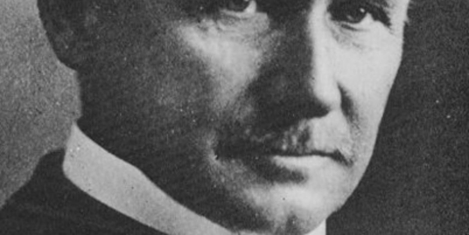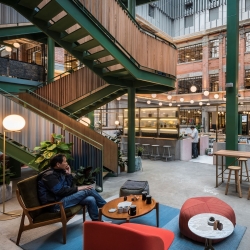To provide the best experiences, we use technologies like cookies to store and/or access device information. Consenting to these technologies will allow us to process data such as browsing behaviour or unique IDs on this site. Not consenting or withdrawing consent, may adversely affect certain features and functions.
The technical storage or access is strictly necessary for the legitimate purpose of enabling the use of a specific service explicitly requested by the subscriber or user, or for the sole purpose of carrying out the transmission of a communication over an electronic communications network.
The technical storage or access is necessary for the legitimate purpose of storing preferences that are not requested by the subscriber or user.
The technical storage or access that is used exclusively for statistical purposes.
The technical storage or access that is used exclusively for anonymous statistical purposes. Without a subpoena, voluntary compliance on the part of your Internet Service Provider, or additional records from a third party, information stored or retrieved for this purpose alone cannot usually be used to identify you.
The technical storage or access is required to create user profiles to send advertising, or to track the user on a website or across several websites for similar marketing purposes.
 If there has been an underlying driver of workplace thinking over the past several decades, it has been a rejection of the principles of scientific management. These begat the idea of the office as a factory, subject to the same rigid times and places of work and the same culture of process, efficiency and productivity. This made a pantomime villain of its key figure Frederick Taylor. The worst adjective you could use to describe a working culture was Taylorist. (more…)
If there has been an underlying driver of workplace thinking over the past several decades, it has been a rejection of the principles of scientific management. These begat the idea of the office as a factory, subject to the same rigid times and places of work and the same culture of process, efficiency and productivity. This made a pantomime villain of its key figure Frederick Taylor. The worst adjective you could use to describe a working culture was Taylorist. (more…)










 A new study by Mercer claims the COVID-19 pandemic and subsequent uncertainty are accelerating changes in the way organisations around the world are working and will continue to work into the future. Particularly in challenging times, employers are focusing on their workforce, specifically fostering healthy lifestyles, supporting financial wellness and providing skills and training as careers change due to AI and technology developments.
A new study by Mercer claims the COVID-19 pandemic and subsequent uncertainty are accelerating changes in the way organisations around the world are working and will continue to work into the future. Particularly in challenging times, employers are focusing on their workforce, specifically fostering healthy lifestyles, supporting financial wellness and providing skills and training as careers change due to AI and technology developments. 






 Four in 10 workers around the world are concerned about their health but don’t want to go to the doctor, a new research report has claimed. Although 40% of workers said they are worried about their long-term health, the same number hadn’t had a health check in the last year and most have no idea about basic indicators such as what their cholesterol level or body fat is. Inflexible and long working hours are compounding the problem, the report by
Four in 10 workers around the world are concerned about their health but don’t want to go to the doctor, a new research report has claimed. Although 40% of workers said they are worried about their long-term health, the same number hadn’t had a health check in the last year and most have no idea about basic indicators such as what their cholesterol level or body fat is. Inflexible and long working hours are compounding the problem, the report by 













June 15, 2020
Wellbeing for remote workers should not be lost in translation
by Brendan Street • Comment, Flexible working, Wellbeing